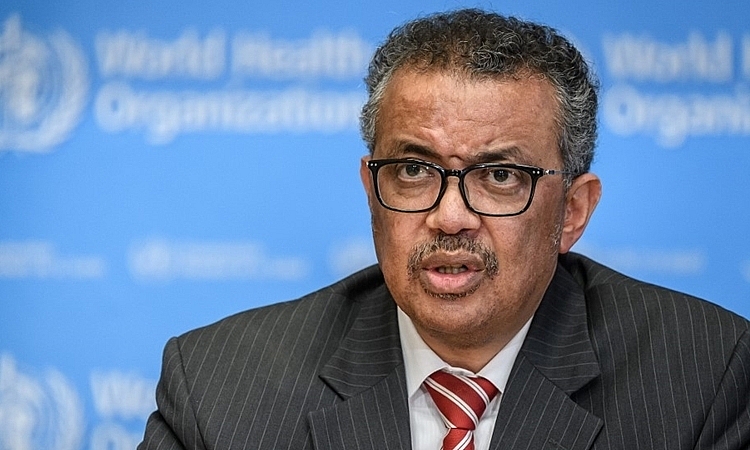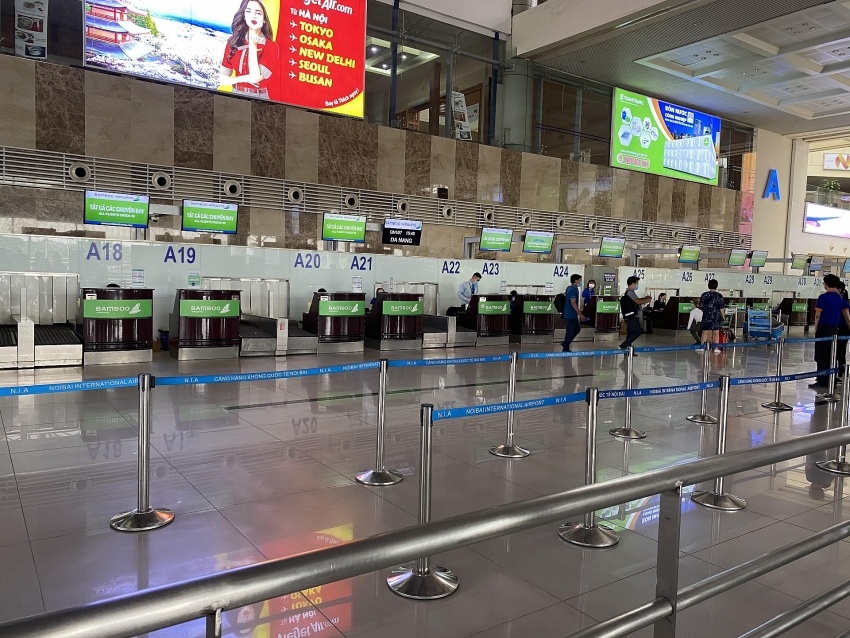WHO declares COVID-19 contagion a global pandemic
The World Health Organization (WHO) officially declared COVID-19 as a global pandemic on Wednesday, March 11 as the number of cases and deaths caused by the virus rises by the hour, spreading to more than 121,000 people from Asia, the Middle East, Europe, and the United States.
"In the past two weeks, the number of cases outside China has increased thirteen fold and the number of affected countries has tripled," WHO Director-General Dr. Tedros Adhanom Ghebreyesus said at a press conference at the organisation's headquarters in Geneva, cited by CNBC. "In the days and weeks ahead, we expect to see the number of cases, the number of deaths, and the number of affected countries to climb even higher."
 |
| The WHO officially declared COVID-19 a global pandemic. Photo: WHO Director-General Dr. Tedros Adhanom Ghebreyesus |
Tedros also emphasised that this was “the first time coronavirus has caused a pandemic.”
It can further rattle already fragile world markets and lead to more stringent travel and trade restrictions.
WHO officials have been reluctant up until now to categorise the virus as a global pandemic, which is generally defined as an illness that spreads far and wide throughout the world.
While the virus is slowing in China where it originated in December, it is picking up pace across other parts of the world.
Confirmed cases reached 121,061 yesterday (March 11) in 115 countries and regions, data compiled by Johns Hopkins University showed. More than 4,360 people have died.
Italy has the most cases outside of China with roughly 10,149 infections, followed closely behind by Iran with 9,000 infections and South Korea with 7,775.
Japan also confirmed 54 new infections a few hours earlier, its second-biggest one-day rise thus far, taking the country’s total to 568. In the US, cases erupted over the last week to more than 1,050 spread across at least 36 states, Johns Hopkins University reported.
Since late January, Chinese authorities have implemented full or partial lockdowns in cities and communities across the country, curbing the movement of hundreds of millions of people.
Similar measures are now being imposed in Italy, the European country worst-hit by the coronavirus, where authorities early Sunday order a lockdown of more than a quarter of the population in the country’s economic heartland.
In Vietnam, the number of confirmed COVID-19 cases nationwide exceeded 38 on March 11, as the outbreak has spread to other parts of the country, including Hanoi, Danang, Quang Ninh, and Binh Thuan.
Yesterday, an employee of retail chain Dien May Xanh in Danang, a subsidiary of Mobile World Group, has just tested positive for COVID-19 after communicating with two infected British tourists.
In addition to Vanda hotel and Dien May Xanh, the two British tourists have reportedly visited numerous restaurants like El Gaucho, Ca Lua, Nuong Da Thanh, La Maison Deli, Pizza 4P's, The Coffee House (in Hai Chau district), and other places like Vinpearl Land Nam Hoi An (Quang Nam province) and Montgomeries Link Hotel & Villas (Quang Nam).
The respiratory disease caused by COVID-19 has also put logistics firms on alert.
 |
| The respiratory disease caused by COVID-19 is making travel less desirable and is also putting a damper on logistics |
Around 50 per cent of companies in the field reported a 10-30 per cent decline in logistics services, while 15 per cent experienced revenue halved in domestic and foreign markets against 2019, according to the Vietnam Logistics Association.
Furthermore, the National Steering Committee for COVID-19 Prevention and Control would suspend the unilateral visa waiver programme for the EU and the UK as part of country's efforts to contain the contagion.
Experts at the Asian Development Bank believed that Vietnam would likely witness a damage of around 0.41 per cent of its total GPD.
What the stars mean:
★ Poor ★ ★ Promising ★★★ Good ★★★★ Very good ★★★★★ Exceptional
Related Contents
Latest News
More News
- VinaCapital launches Vietnam's first two strategic-beta ETFs (February 26, 2026 | 09:00)
- PM sets five key tasks to accelerate sci-tech development (February 26, 2026 | 08:00)
- PM outlines new tasks for healthcare sector (February 25, 2026 | 16:00)
- Citi report finds global trade transformed by tariffs and AI (February 25, 2026 | 10:49)
- Vietnam sets ambitious dairy growth targets (February 24, 2026 | 18:00)
- Vietnam, New Zealand seek level-up in ties (February 19, 2026 | 18:06)
- Untapped potential in relations with Indonesia (February 19, 2026 | 17:56)
- German strengths match Vietnamese aspirations (February 19, 2026 | 17:40)
- Vietnam’s pivotal year for advancing sustainability (February 19, 2026 | 08:44)
- Strengthening the core role of industry and trade (February 19, 2026 | 08:35)

 Tag:
Tag:


























 Mobile Version
Mobile Version